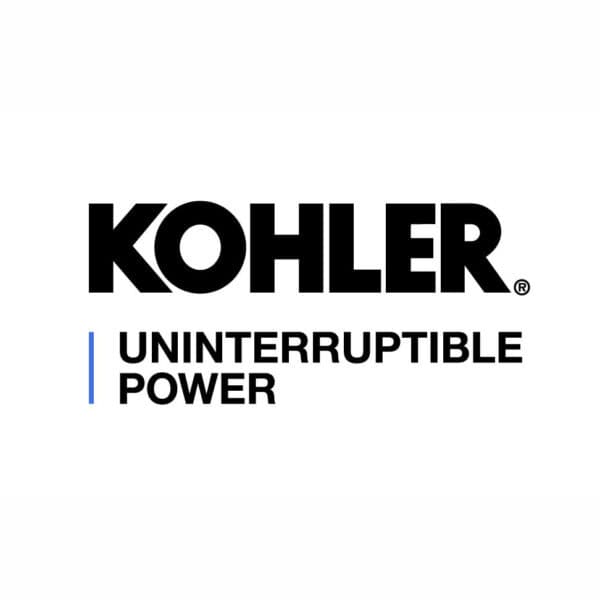AEGON upgrades its infrastructure
The Challenge
When AEGON decided to create a new power infrastructure including power protection at its Edinburgh facility, the company turned to KOHLER Uninterruptible Power (KUP) to look after its power protection requirements.
AEGON is one of the world’s largest life insurance and pension companies, employing approx 29,000 people, across 20 countries and servicing over 40 million customers around the globe. AEGON’s Edinburgh facility recently underwent an extensive upgrade.
The extensive work included the design and installation of a new totally electrical power infrastructure – including a UPS power protection solution for its mission-critical data centre – supplied by KUP.
Project success hinged on a first-class relationship between AEGON, the design team, principal contractor, sub-contractors and suppliers who all needed a clear understanding of data centre operating requirements and constraints – such is the demand for high availability. Only contractors and suppliers that had the skill-set and expertise to complete the project – with no downtime – in a live working environment – were selected and employed on the project.
For a company the size of AEGON, dealing with the day-to-day demands of facilities management is never an easy task. Add an extensive upgrade to that pressure and you can appreciate the challenges faced by James Ferguson, facilities manager at AEGON’s Scotland site. This pressure was somewhat eased by the fact that consulting and building services engineering practice, RSP Consulting Engineers LLP, was awarded the design and supervision based on their unrivalled experience and track record in the data centre arena. KOHLER Uninterruptible Power’ modular UPS was also chosen as the power protection option which perfectly matched AEGON’s requirements following an extensive UPS system review.
When it came to power protection, AEGON had some very exacting requirements:
- Highest Tier III/IV availability – N+1 resilience
- Greatest operating and energy efficiency – up to 94% at partial load
- Lowest total cost of ownership – predicted saving over a five-year period of almost £0.25M when operating at full load.
- Scalability – capacity increase from 750kVA to final loading of 1250kVA within two years
- Ease of repair, replacement and overall ongoing maintenance – ‘hot-swap’ modularity
- Smallest UPS footprint/highest capacity solution – system takes up 50% less floor space than a traditional, static UPS
- Flexibility – expandable without power downtime, and in incremental steps
“A modular system removes this potentially dangerous situation. Should a module fail at AEGON, the engineer would be onsite a mere 10-15 minutes swapping out the faulty module for a fully functioning unit. The faulty one can later be examined and repaired at leisure in KUP’s workshop, which is a risk free environment.”
KOHLER Uninterruptible Power
“We’ve installed various types of UPS back-up systems including KOHLER Uninterruptible Power’ modular UPS technology in data centres, comms and SER rooms previously. KUP systems are particularly suitable for such environments because of their scalability and maintainability. In comparison with traditional static UPS, modular designs are smaller and lighter. They also allow you to install higher capacity in a much smaller footprint.
Alan Chudziak, Consulting engineer with RSP
Zero Downtime – crucial to success
The project had to be completed quickly, but it had to be handled with care, as it was a live working environment. Downtime was not an option, as Ferguson explains:
“It’s about consistency of purpose, breaking everything down into constituent parts and delegating up and down. Success is about allowing the contractors and suppliers to actively participate within the project team but within the constraints of working in a live data centre and the day-to-day running of the business.”
Existing Power Protection Wholly Inadequate
Existing back-up power protection on site came from a traditional UPS, with generator back up. The Synchronous operation between Edinburgh and North America found that the existing system had become inadequate. Operating and energy efficiencies were poor, it was inflexible, and could not be easily expanded.
The Relevance of Modular UPS
Alan Chudziak, consulting engineer with RSP, who designed the electrical power infrastructure and UPS back-up protection system (alongside overseeing the AEGON project from planning to ‘go-live’ and hand-over), takes up the story:
“We’ve installed various types of UPS back-up systems including KOHLER Uninterruptible Power’ modular UPS technology in data centres, comms and SER rooms previously. KUP systems are particularly suitable for such environments because of their scalability and maintainability. In comparison with traditional static UPS, modular designs are smaller and lighter. They also allow you to install higher capacity in a much smaller footprint. They are easy to site; in this case via an existing 2,500kg capacity service lift. We’d considered installing four 400kVA traditional UPS units in an N+1 design, but it would have entailed costly, disruptive and time-consuming building works to crane them into position within the roof level plant room.”
KOHLER PW 9000DPA has improved availability measures at AEGON by providing the required capacity (currently 750kVA/600 kW in 30 by 50kVA UPS modules. Housed in cabinets and operated in a parallel N+1 configuration, the modules are ‘hot-swappable’. The floor space required by each cabinet is 0.58 square metres and a cabinet weighs just 490kgs. An equivalently-sized static UPS would require 5-6 square metres of floor space and weigh 8000kgs.
KOHLER Uninterruptible Power, explains how KUP’s products ease the stress for clients and UPS engineers: “Picture the scenario: at an installation with traditional static UPS, it’s 3am and the facilities manager is woken by a telephone call to say one of the UPS has gone down. He calls the engineer to attend site. Isolating the unit, removing covers, fault diagnosis, testing all takes time – all the while his boss and the facilities manager are breathing down his neck. It’s very stressful. Couple that with the tiredness of the hour – and it’s easy to understand how mistakes can be made.
“A modular system removes this potentially dangerous situation. Should a module fail at AEGON, the engineer would be onsite a mere 10-15 minutes swapping out the faulty module for a fully functioning unit. The faulty one can later be examined and repaired at leisure in KUP’s workshop, which is a risk free environment.”
Right-sizing Power Protection for AEGON
Another key feature of modular UPS is termed Right Sizing. In traditional static installations, UPS units are often oversized so they are not required to regularly run beyond their design limits. This carries a cost implication. The new system has been designed to more accurately match total load requirements. This also reduces the battery count and increases efficiency because each module operates at a much higher load than a traditional static UPS (usually running at only 25% load).
A reliable power supply is the lifeblood of any organization. Few can revert to manual operation in the event of a mains power failure. In AEGON’s case, with KUP’s KOHLER PW 9000DPA at its heart, critical power supplies can be sustained.
Colour-coded Electrical System Design for Added Security
RSP Consulting Engineers have designed a dual string power infra-structure distribution system, utilizing green & red coloured switchgear throughout, which is cross referenced to the electrical distribution schematics. This colour coding has a significant impact, enabling engineers to accurately pin point what string they are working on and where on the system it is. The system speeds up fault finding, provides greater security of installation and enhances ongoing maintenance.
The distribution network, which utilizes a dual string; two separate supplies from Scottish Power’s local sub-station operating in an N+1 redundant configuration. One feed is shown in green, the other in red, with distribution cabinets, switchgear and associated equipment styled in the corresponding colours. It’s immediately apparent what is what and impossible to mix it up. The electrical engineering design is also integrated with all other departments to produce a coordinated, whole business solution.
Replacing 70 Tonnes of Cabling
A key element of Ferguson’s challenges, and one which presented RSP with a unique problem, was the amount of cabling required. Unlike data cables that can be easily run around an existing building, electrical supply cables cannot – being too large and cumbersome. At AEGON, there were four main cable interconnections comprising of 16 heavy cables, equating to 70 tonnes of cable.
RSP’s Chudziak remembers the head scratching that went on: “We knew the building had to remain live at all times. The only way to achieve this was to install the new power infra-structure through the building on the basis of out-of-hours working. We had the Easter Bank holiday weekend to get the new packaged substation equipment energized, having commenced work on site mid March. The contractor’s site resource (at any one time between 50 and 60 operatives) worked round the clock to complete on time.”
Thinking about the future
The upgrade is part of AEGON’s 10-15 year commercial plan, it’s a phased scheme (this being phase one).
As AEGON grows, its need for electrical capacity will increase. KUP’s technology allows it to take incremental steps by increasing UPS capacity as required. In this instance, by adding more 50kVA modules. If this had been a traditional static UPS, in a four by 400kVA configuration, the only option would have been to install another UPS unit in parallel, which would have been a large, singular load step that would, in the short to medium term, have created wasted capacity.
The partnership between RSP and KOHLER Uninterruptible Power has ensured that, in terms of power protection, AEGON is not facing another significant challenge – just business as usual.
Another aim has been for the electrical engineering services to be energy efficient and minimise the impact on the environment.
AEGON’s green UPS credential
Cost of ownership predicted saving over a five-year period – almost £250,000 predicted CO2 reduction over that same period – over 1000 tonnes carbon neutral offset equates to almost 1700 trees.




